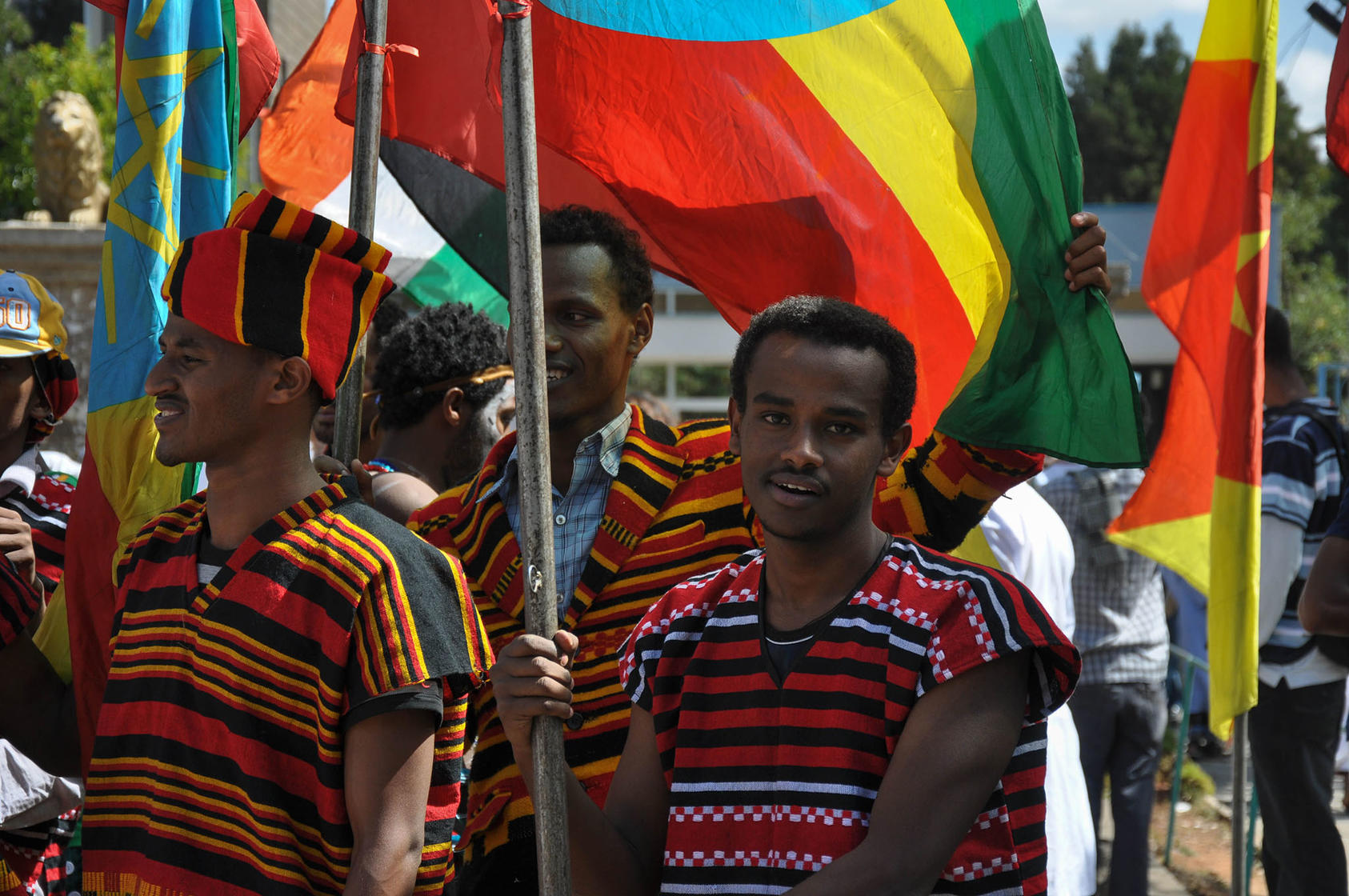In Southern Ethiopia, Trouble Brews in Sidama
Demands for statehood are straining the country’s federal model.
The southern Ethiopian area of Sidama is famous for its coffee. But amid the beans, bitterness lingers. More than 50 people were killed in recent violence, as Ethiopia struggles with demands for the creation of a new Sidama ethnic federal state—a right explicitly permitted by the national constitution. USIP’s Aly Verjee discusses the implications of this latest challenge to peace in Africa’s second most populous country.

What is happening in Sidama?
In July 2018, representatives of the Sidama people triggered a constitutional provision to transform Sidama from a zone—a lower level of administrative unit, akin to a district—to a fully-fledged regional state in the Ethiopian federation, subject to a referendum outcome in favor of statehood. The Sidama zone is currently part of the Southern Nations, Nationalities, and Peoples' Region (SNNPR), one of the nine ethnically based regional states of Ethiopia.
Ethiopia’s federal constitution required the authorities to organize a referendum within a year of the statehood request being made. But as the July 18, 2019 deadline approached, it became apparent that no vote would be organized in time. As a result, some Sidama campaigners threatened to unilaterally declare Sidama’s statehood on that date, arguing that the undue delay in holding the referendum justified such a declaration. Ultimately, the Sidama community’s leadership deferred a formal declaration of statehood, acceding to a plan by the National Electoral Board of Ethiopia (NEBE), announced the day before the deadline, to hold a referendum “within the coming five months.”
NEBE’s announcement was too late to prevent the loss of life. Some citizens protested in favor of statehood demands, and in a heavy-handed crackdown, government security agencies clashed with civilians. Fatalities, injuries and property losses were reported in towns including Aleta Wendo, Hagere Selam, Melga, Yirgalem, and the SNNPR state capital and largest city, Hawassa.
What are the national implications of Sidama’s demand for statehood?
Demands for Sidama statehood are a test of Ethiopia’s constitutional organizing principle: that states are formed on the basis of ethnic identity. Sidama would be the first new state created in Ethiopia since the current nine-state federation came into being in the 1990s. Prior to 1995 and the creation of the SNNPR, Sidama was its own state.
The SNNPR is among Ethiopia’s most diverse regions. Some worry that if Sidama becomes a state, it would presage the disintegration of the SNNPR, and the possible displacement of thousands of people along ethnic lines. Already, the Wolayta ethnic group has filed its request for a statehood referendum, with that constitutional deadline coming due in December 2019. Other groups could follow. A recent International Crisis Group report warned that Sidama’s statehood demand “could catalyze a violent unravelling of the Southern Nations … [though] the authorities would have to draw the line somewhere.”
Ethiopia’s 1995 constitution is explicit: “sovereign power resides in the nations, nationalities, and peoples of Ethiopia,” rather than in the member states of the federation, with nationality defined along measures of culture, customs, language, identity, and an “identifiable, predominantly contiguous territory.” With such a definition, it is not clear that a line could easily be drawn between which nationality or people of Ethiopia are entitled to a state and which are not.
At the same time, ethnic federalism—unique in contemporary practice to Ethiopia—remains extremely popular within the country. While Sidama may have ignited the current trend for new states, many demands for statehood are historically rooted in past struggles against the central government or in fights against identity-based oppression.
What happens next?
Youth have been at the forefront of the statehood campaign in Sidama. The Ejjeto (hero) movement has been a leading force in the mobilization of the Sidama people in the statehood campaign. Having had little choice but to acquiesce to the delayed referendum—despite earlier pledges not to wait beyond July 18 to make a unilateral declaration—their patience is finite.
While some have argued that Sidama’s statehood campaign doesn’t come at the right time for Ethiopia, which is facing so many other challenges in its ongoing political transition, the constitution’s provisions on ethnic federalism, nations, and nationalities do not have a suspension clause because they are temporally inconvenient. The debate about whether ethnic federalism is flawed in its design, in its implementation, or both, will continue.
Much responsibility falls on the NEBE, now led by a former opposition party leader and judge, to make credible and timely preparations for the Sidama referendum. With tensions already heightened, a legitimate vote could mitigate the risk of further violence. But if there is another delay, trouble will quickly resurface. The role of Prime Minister Abiy Ahmed and the federal security forces is also key. Further government-directed repression will not cure Sidama’s grievances, nor extinguish calls for statehood, whether in Sidama or beyond.



